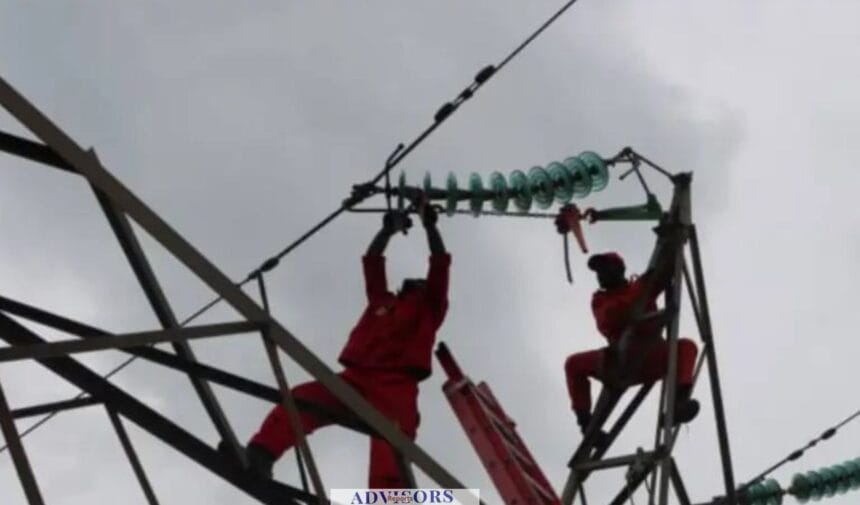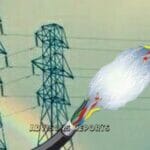… NERC, TCN trace Saturday disruption to transformer explosion at Jebba substation
… grid recovery reaches 1,060MW after total collapse, still below expected 4,800MW output
Oredola Adeola
The Nigerian Electricity Regulatory Commission (NERC) has announced plans to conduct an investigative public hearing to uncover the immediate and underlying causes of the frequent grid disturbances that have led to widespread power outages across the country.
This move follows a surge in recent grid disruptions, resulting in prolonged blackouts in multiple states.
NERC disclosed that the date and venue for the hearing will be communicated shortly through national newspapers, encouraging all relevant stakeholders to participate actively in the proceedings.
The Commission expressed concern that the recurring grid collapses have set back recent progress in addressing infrastructure deficits and stabilizing the power grid.
Providing an update on the latest incident, NERC reported that the grid disturbance experienced earlier today was triggered by the explosion of a current transformer at the Jebba transmission station at approximately 8:15 am, leading to a cascading shutdown of several power plants due to the sudden loss of load.
However, by 1:00 pm, power had been substantially restored in 33 states and the Federal Capital Territory (FCT).
“In line with the provisions of the Electricity Act 2023, the unbundling of the System Operator (SO) from the Transmission Company of Nigeria (TCN) is underway.
The establishment of an independent System Operator (ISO) is expected to foster greater discipline in grid management and encourage optimized investments in critical infrastructure,” NERC stated.
The Commission reaffirmed its commitment to achieving a lasting solution to the challenges confronting the national grid and ensuring improved electricity supply across the country.
Following the NERC statement on the national grid disturbance, the Transmission Company of Nigeria (TCN) has provided further details, confirming that the incident occurred around 8:15 a.m. on Saturday, October 2024.
In a statement issued by Ndidi Mbah, TCN’s General Manager, Public Affairs, the disruption was traced to an explosion involving the bus section of a current transformer at the 330kV Jebba Transmission Substation, based on reports from the National Control Centre (NCC).
Mbah explained that the grid’s protection system functioned as designed by swiftly isolating the affected busbars to contain the impact of the explosion. This timely intervention prevented a fire outbreak and minimized potential damage to other equipment.
“The activation of the protection system caused a temporary disturbance across the grid,” she said, adding that TCN engineers promptly isolated the faulty transformer and reconfigured the busbar arrangement.
Power supply has since been restored to the Jebba station and other parts of the grid. Mbah reassured the public that TCN remains committed to stabilizing the grid and minimizing future disruptions.
This update aligns with NERC’s earlier remarks that efforts to restore power were well underway, with electricity supply restored to 33 states and the FCT by 1 p.m.
Efforts to restore the national grid are progressing, with power generation reaching 1,060MW as of the time of filing this report.
Electricity distribution companies (DisCos) have begun receiving allocations, including Abuja (120MW), Benin (100MW), Eko (200MW), Enugu (80MW), Ibadan (150MW), Ikeja (200MW), Jos (30MW), Kaduna (70MW), Kano (40MW), Port Harcourt (40MW), and Yola (30MW).
This comes after a total grid collapse earlier in the day, which occurred at 8:40 a.m. on Saturday, October 19, leaving the entire country without power.
During the collapse, electricity supply across the grid dropped to 0 megawatts (MW), disrupting service to all DisCos nationwide.
By 9:00 a.m., partial restoration efforts had commenced, bringing the grid output to 140MW.
Power generation was further boosted to 220MW by 10:40 a.m. as engineers continued work to stabilize the system.
Although the grid has recovered to 1,060MW, this is still significantly below the country’s expected output of 4,800MW.




